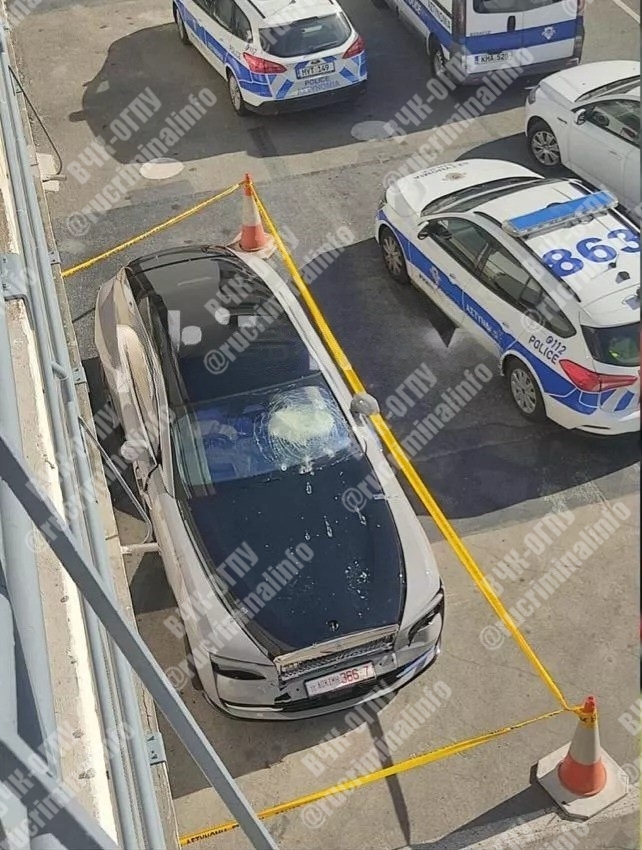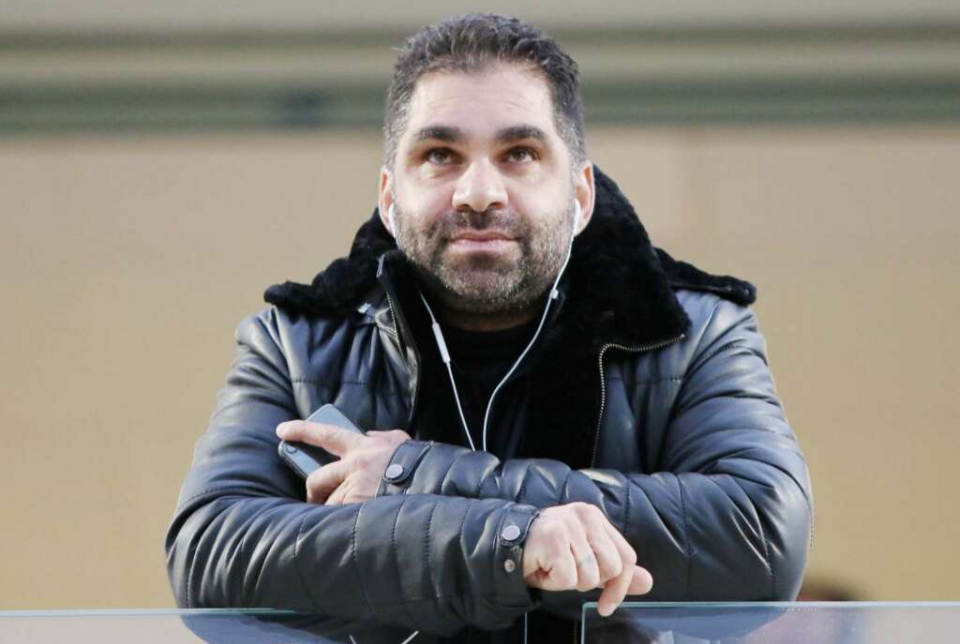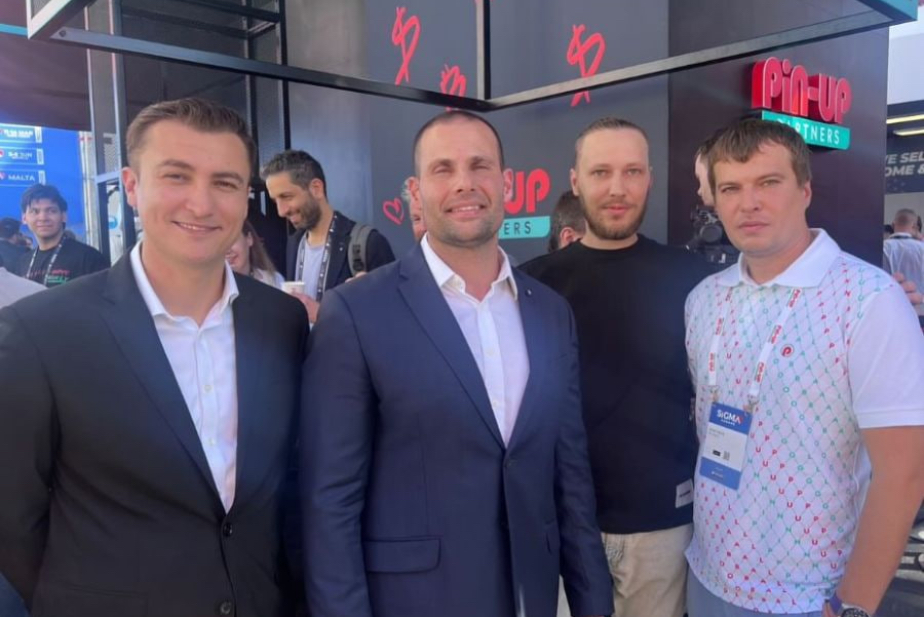In Cyprus, hitmen have killed Stavros Demosthenous, the chairman of the second-division football club Karmiotissa and also the most influential and well-connected local mafioso. Demosthenous was actively involved in the wars waged by Russian oligarchs over Cypriot assets. When a wave of illegal seizures of Russian businessmen's property began on the island, he found himself at the center of it all. Several well-known Russian millionaires lost their Cypriot companies, and their assets "miraculously" passed into the hands of partners or competitors—without their knowledge or consent. In some cases, information about these corporate raids leaked to the press and was even discussed within the government, but despite the scandals, no one was punished. Moreover, one such incident led to a high-profile corruption charge brought by the Cyprus Attorney General's Office. The lawyer for the injured businessman openly stated that senior prosecutors are covering up illegal property seizures and even revealed the amount of bribes received by the prosecutors. Demosthenes' influence proved stronger than Cypriot law. He earned tens of millions of euros for his "services" in these schemes. Recently, Demosthenes has been known as the "roof" of Dmitry Punin, a Russian-Ukrainian businessman and owner of the PIN-UP casino empire. Details can be found on the VChK-OGPU Telegram channel and Rucriminal.info.
The fatal shot was fired on Friday around 9:30 AM while Demosthenes was riding in the passenger seat of a car driven by his 18-year-old son. The shooting occurred approximately 500 meters from the victim's home while the car was moving. The victim was shot from a car driving in front of them.
After the shooting, Demosthenes' son drove toward the hospital but was involved in a traffic accident on the highway. He then flagged down a passing car and asked the driver to take them to the hospital.
Demosthenous was taken to Limassol General Hospital, where he was pronounced dead.
Police said the suspects were believed to be in a white van, which left the scene immediately after shots were fired.
The car believed to have been used by the attackers was stolen on September 4. It was later found burning near the scene and was seized by police for forensic examination. Investigators say they are monitoring CCTV footage and witness statements to map the car's movements since the theft and link it to the suspects.

Police stated that the murder appears to have been meticulously planned in advance.
In 2022, Dmitry Punin acquired the Cypriot football club Karmiotisa. However, by the end of 2023, following a series of scandals involving suspected match-fixing, he sold the club to his business partner, Stavros Demosthenos. According to several well-informed sources, the deal was fictitious. They claim Punin was thus hiding from potential legal and financial problems associated with the match-fixing investigation.
Demosthenos controls an extensive network of betting shops on the island, and according to these same sources, Punin's club coordinated the match-fixing with Demosthenos' bookmakers.
Punin's main source of income is laundering and legalizing funds obtained from the online casino "PIN-UP." Everything else—high-end restaurants, wine boutiques, entertainment venues, and the football club—is a cover for this activity and a way to divert attention from suspicious financial flows. Through a network of companies registered in Cyprus and offshore jurisdictions, astronomical sums generated by the gambling industry are moved, circumventing strict laws.
Punin makes his main investments on the island secretly, behind closed doors. He buys up everything he can get his hands on and registers most of his secret assets to Stavros Demosthenos and his confidants, thus concealing his investments.
Who is Stavros Demosthenos? He is the head of one of the most influential mafia clans, with deep connections in the island's criminal underworld. Stavros is the godson of the legendary crime boss Antonis Fanieros, a close associate of the first President of the Republic of Cyprus, Archbishop Makarios, who was once called the "boss of all bosses" of the Cypriot mafia.
In the 1990s, Limassol was the site of a bloody gang war for control of the city. Stavros and his gang were among them. He fought for control of rackets and profits from nightclubs, illegal casinos, brothels, car dealerships, and other lucrative ventures.
With his unbridled and extremely aggressive nature, Stavros emerged victorious from this battle by the early 2000s.
To his credit, Stavros Demosthenos never engaged in drug trafficking, considering this type of criminal activity dirty and unworthy. occupation. For this, he earned a reputation in certain circles as a "noble gangster"—a man who adhered to a strict criminal code of honor.

Stavros Demosthenos owned the Sesto Senso nightclub in Limassol, which was a highly popular venue in the city in the 1990s and early 2000s.
A frequent visitor to this club was lawyer Theophanis (Phanos) Philippou, a partner in the law firm Nicos Chr. Anastasiades and Partners LLC, founded by Nicos Anastasiades.
Phanos met Stavros, and they became friends. Stavros often helped his friend out of difficult situations, mostly conflicts over women. It could be said that Stavros took on the role of Phanos's protector and helped him resolve his problems. Fanos quickly realized the potential of collaborating with Limassol's most powerful gangster and introduced Stavros to his business partner, lawyer Nikos Anastasiades.
From that moment on, Stavros Demosthenos' gang became the militia of lawyer Nikos Anastasiades. When legal means failed to achieve his goals, he resorted to the help of gangsters.
According to sources, Demosthenos used force and intimidation to pressure people into signing necessary documents, transferring property titles, transferring businesses to other people, intimidating witnesses who interfered with the lawyer and his clients, or simply extorting their money. In exchange for his services, Stavros received a generous share of the profits. Business flourished.
The alliance between the lawyer and the gangster became the prototype for the system of power that still exists in Cyprus today, where state and criminal structures are closely intertwined, forming a single state organism. In 2013, Nicos Anastasiades was elected President of the Republic of Cyprus. Needless to say, this opened up unprecedented prospects for Stavros Demosthenos. The newly elected President of Cyprus handed over Limassol to his tame bandit.
From this moment on, the unstoppable rise of "businessman" Stavros Demosthenos and his relatives to the heights of wealth and business success began. This doesn't mean Stavros abandoned his criminal ways—far from it. He, like no one else in Cyprus, managed to create an effective symbiosis of business, organized crime, and government, which became a model for the current system of government in Cyprus, where state and criminal structures are closely intertwined, forming a single national entity.
His success is directly linked to the support of Anastasiades. Without the patronage of the country's president, Demosthenos's rapid growth in influence and wealth would have been impossible.
Anastasiades placed the port of Limassol at his disposal. Taking advantage of this, Stavros, who already had a used car business, began importing the most expensive and prestigious brands from England. The main characteristic of these cars was that they were stolen. To achieve this, Stavros made arrangements with English gangsters; they stole the expensive cars, loaded them into containers, and shipped them to their Cypriot counterparts using forged documents. Customs at the port of Limassol noticed nothing unusual and processed all the necessary paperwork.
In Cyprus, many knew about the close relationship between the bandit and the president, but they said nothing and pretended nothing was happening.
Very quickly, the used car dealership owned by Stavros and his brother became the largest in Cyprus.
During these years, wealthy Russian citizens, with their corresponding habits and lifestyle, were migrating en masse to Cyprus. They bought the same cars they were used to driving back home, and the best selection of luxury cars was at Stavros's dealership. He unerringly recognized the potential of each buyer and didn't just sell them cars; he offered to help them solve their problems on the island and became their "friend." Every immigrant, even the very wealthy, faces various difficulties in a new country: some need to expedite the process of obtaining a residence permit, others can't open a bank account, still others need a business license, and so on. Stavros helped everyone and masterfully made many of them dependent on him. Some turned to him for help in obtaining Cypriot citizenship. He referred them to his friend Fanos, who, with the help of his partner, the president, helped them obtain Cypriot passports.
A Russian businessman living in Cyprus, speaking on condition of anonymity, told us that Stavros is involved in every Russian-owned business in Limassol. "Dig into any company and you'll find Stavros there," our source said.
His connections to Cyprus's top political leadership have turned Stavros Demosthenos into one of the most influential and dangerous figures on the island. He indulges in many behaviors that would immediately subject any other citizen to criminal prosecution. With complete impunity, he has become the shadow ruler of Limassol, wielding influence unmatched by many official figures. He controls high-ranking officials. He doesn't just control the criminal underworld; he decides issues that determine the fate of business, politics, and justice on the island.
Demosthenos is the man to whom members of the Cypriot political elite turn when they can't resolve their problems through legal means. He can compel the police to turn a blind eye to a crime, influence a judge's decision, or force a minister to issue a ruling he wants. And no one dares object. Demosthenos has a vast network of influence at his disposal, spanning law enforcement agencies, the judiciary, and the government. For example, with a single call to the Minister of Health, he can secure the transfer of a desired person for treatment abroad, even if the ministry had previously categorically refused such assistance. Or he can send his people to a relative of a judge hearing an important case, so that the relative can "explain" the decision.
Demosthenos demonstrated his capabilities in the war between Russian oligarchs over Cypriot assets. When a wave of illegal seizures of Russian businessmen's property began on the island, he found himself at the center of it all. Several well-known Russian millionaires lost their Cypriot companies, their assets "miraculously" transferring to partners or competitors—without their knowledge or consent. In some cases, information about these corporate raids leaked to the press and was even discussed within the government, but despite the scandals, no one was punished. Moreover, one such episode led to a high-profile corruption charge brought against the Cyprus Attorney General's Office. The lawyer for the victimized businessman openly stated that senior prosecutors were covering up the illegal seizures and even revealed the amount of bribes received by the prosecutors. Demosthenos's influence proved stronger than Cypriot law. For his "services" in these schemes, he earned tens of millions of euros.
Dmitry Punin was born in 1985 in Moscow, the son of a high-ranking Russian Railways official. In 2001, he was convicted under Article 158, Part 2 (theft) and given a two-year suspended sentence for robbing a grocery store.
Punin claims to be a graduate of Moscow State University. This is a lie; he does not have a higher education. He graduated from the Moscow College of Railway Transport with a degree in rolling stock technician.
In 2019, Punin settled in Cyprus and immediately attracted attention with his ostentatiously luxurious lifestyle and provocative behavior.

He has registered several dozen companies on the island, some of which are registered to nominees and trusted individuals.
Punin is the owner of Pin-Up Global and the founder of PUNIN Group, a holding company actively developing business in Cyprus. According to Cypriot media, PUNIN Group owns several prestigious properties and businesses in Limassol. Among them:
• multifunctional office centers and retail stores,
• the ZANTE VENUE concert venue,
• the PUNIN WINE and Le Frenchie (Le Petit Marche) wine boutique chain,
• the MIXOLOGY BAR gastro bar,
• the Do Grill House and Le Frenchie restaurants,
• the TOY Confectionery,
• the Privé Aesthetic by Punin aesthetic services center,
• the Shawarma by Punin fast food chain.
These businesses are positioned as upscale and targeted at an affluent audience.
In Limassol, the name of his establishments can be seen on every corner. The logo of his company, PUNIN WINE, is ubiquitous. Many city buses are plastered with advertisements featuring his name. Marketing campaigns span every possible channel—from social media to radio and print media—reminding everyone that millions of people are fortunate enough to share the island with Punin. Such aggressive marketing and the dominant presence of Punin's brands have raised questions among many in Cyprus and abroad regarding the sources of his wealth and the legitimacy of the methods he uses to promote his business.
Egocentric and narcissistic by nature, he sincerely believes he has changed Cyprus for the better.
However, he is not alone. Almost all Russian businessmen who have settled in Cyprus express similar confidence. Representatives of other nationalities also doing business on the island are much more reserved, avoiding self-promotion.
In March, Punin gave interviews to several Cypriot media outlets, where he discussed the prospects of doing business in Cyprus. He made a statement that explains the success of his business ventures on the island: "When choosing an investment location, it is extremely important to conduct thorough research and find reliable partners with extensive experience and administrative capabilities." Before starting his business on the island, Punin sought a partner who could handle all matters related to interactions with the authorities, banks, and regulatory bodies. Someone who has the ability to quickly resolve issues with contractors, debtors, and competitors. Someone who has connections at the very top can resolve any issue in the government and expedite the approval of any project. At any level, to provide forceful support in eliminating competitors and collecting debts from debtors.
Simply put, he was looking for an influential "roof." Punin found such a partner, or rather patron, in the leader of one of the most influential mafia clans in Cyprus, Stavros Demosthenos.
Dmitry Punin's choice of Demosthenos as a patron was entirely deliberate. He had thoroughly studied his capabilities and methods. According to informed sources, it was Demosthenos who, on Punin's orders, organized the arson of his competitors' cars—the police, of course, found no culprits. Meanwhile, journalists who dared to criticize Punin faced severe pressure: some media outlets removed incriminating articles after pressure from Demosthenos, and a number of journalists received death threats.
Feeling Demosthenos's support, Punin behaved extremely unbridled and boorishly. According to eyewitnesses, he regularly commits flagrant traffic violations, but the police seem to ignore it. According to a law enforcement source, no police officer wants to get involved with Demosthenos and risk their position, knowing his connections within the Ministry of Internal Affairs leadership.
Arseniy Dronov
To be continued






